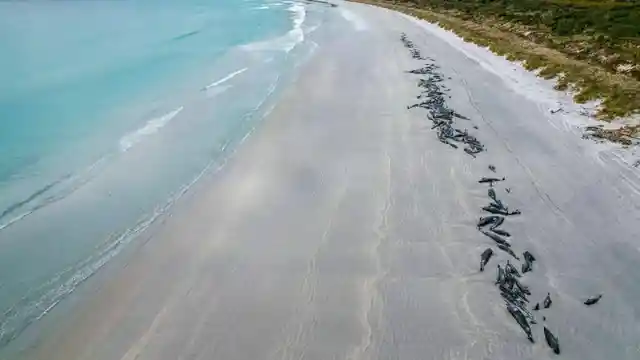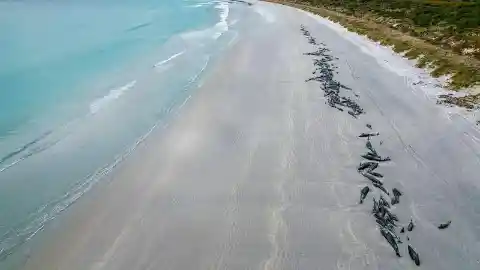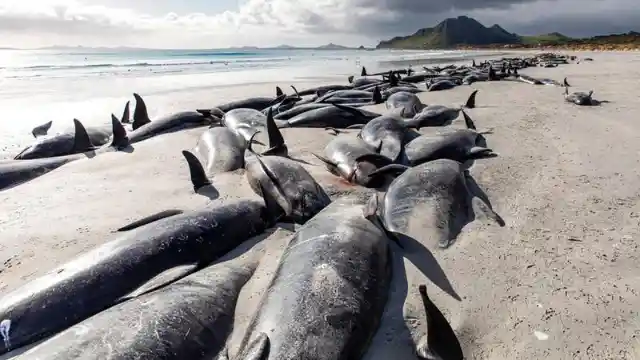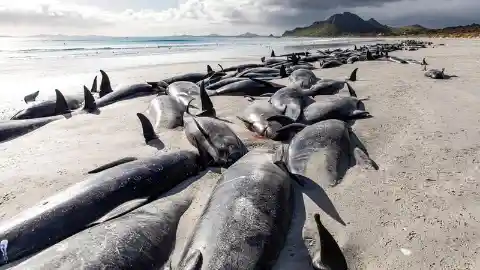Nearly five hundred pilot whales have died on New Zealand's Chatham Islands in recent days after becoming stranded. This is one of the largest mass strandings in history, reports The New Zealand Herald.


The whales washed ashore at two different locations, reports the Department of Conservation. An animal rescue worker reports that the pilot whales died of natural causes or were killed.
Due to the remote locations where the pilot whales washed up and the presence of sharks, rescue efforts were deemed hopeless. The carcasses were left to decompose.
Around the Chatham Islands, food is plentiful for pilot whales. As they get closer to shore, they can quickly move from very deep water into very shallow water. Animal experts say that is a possible explanation for the mass stranding in recent days.


Some 1,000 whales were stranded on the Chatham Islands in 1918
The Chatham Islands also saw a mass stranding of marine animals in 1918. Then about a thousand whales washed ashore. That was the largest mass stranding ever in New Zealand's history.
Two weeks ago another two hundred pilot whales died in Australia. Those washed up on a remote Tasmanian beach.
Pilot whales grow to a maximum length of about 6 meters and are the most common whale species in New Zealand waters. They mainly eat squid and medium-sized fish. Pilot whales are found mainly in the oceans around Antarctica and the northern Atlantic Ocean. Occasionally they also turn up in places such as the North Sea and the Mediterranean Sea.